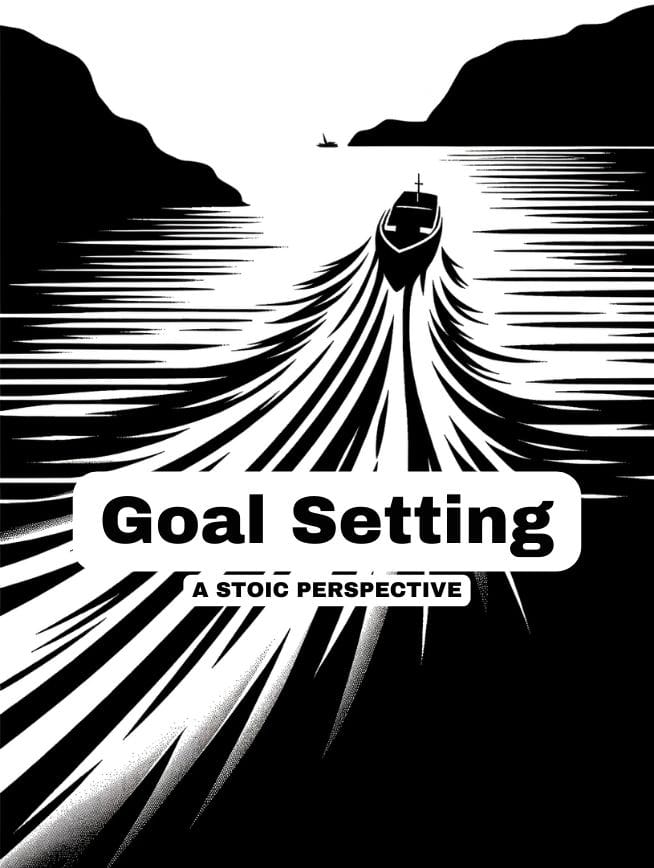A Stoic Guide to Setting Goals
Stoic philosophy teaches clear, simple goal setting as a path to a fulfilling life. Through the wisdom of Marcus Aurelius, Epictetus, and Seneca, we learn to envision our goals, simplify our approach, and value steady progress, embracing the journey towards meaningful achievements.

In life, having clear goals is like having a map. It helps us know where we are headed. This idea is not new. In fact, it comes from ancient thinkers like Marcus Aurelius, Epictetus, and Seneca, who were all about Stoic philosophy. They believed that setting the right goals is the key to a good life.
Marcus Aurelius once said,
“If you don’t have a consistent goal in life, you can’t live in a consistent way.”

This means having a clear purpose helps us stay on track.
Similarly, Epictetus advised, “First say to yourself what you would be; and then do what you have to do.” This means we should first decide what we want, and then work to get it.
“If one does not know to which port one is sailing, no wind is favourable.” - Seneca

Without a clear goal, we are lost, no matter what opportunities come our way.
So how can we use this old wisdom today?
By keeping things simple and focused. As the saying goes, “Let all your efforts be directed to something, let it keep that end in view.” This means we should aim all our actions at reaching our goals, always keeping in mind what we want to achieve.
Stoicism also teaches us to keep life simple. This means having a few important goals instead of many small ones. It's about focusing on what really matters.
Over time, small steps towards these few important goals will add up to big changes.
It’s the idea that ‘not much’ can turn into a lot if we keep at it.
--
A step by step guide:
If you want something more specific, try this:
- Define Your Core Goals: Reflect on what Marcus Aurelius said and identify your consistent goals in life. Ask yourself, “What is my clear purpose?” Write these goals down and make them as specific as possible. (Remember, any goal is better than none)
- Visualize Your Ideal Self: Taking a leaf from Epictetus' book, imagine who you want to be. This could be in terms of your career, personal development, relationships, or health. Clearly visualize this ideal version of yourself.
- Create Actionable Steps: Now that you have your vision, break it down into achievable steps. What can you do today, this week, or this month to move closer to that ideal self? This approach turns your goals from abstract ideas into concrete actions.
- Prioritize Your Goals: Follow the Stoic principle of simplicity. Instead of overwhelming yourself with numerous goals, focus on a select few that really matter. Quality over quantity is key here.
- Track Your Progress: Make a habit of reviewing your goals and the steps you’re taking regularly. This can be a quick daily check-in or a more detailed weekly review. Tracking helps you stay focused and adjust your actions as needed.
- Embrace Small Consistencies: Remember Seneca's words about knowing your port. Even the smallest step toward your goal is progress. Celebrate these small wins; they accumulate over time to lead to significant changes.
- Align Daily Actions with Goals: Every day, ask yourself, “What am I doing today to reach my goals?” Ensure that your daily actions align with the broader objectives you’ve set for yourself.
Put simply, each day your actions should be towards a goal.
What are you working on now?
T3B
EDITED: Dec 2023

